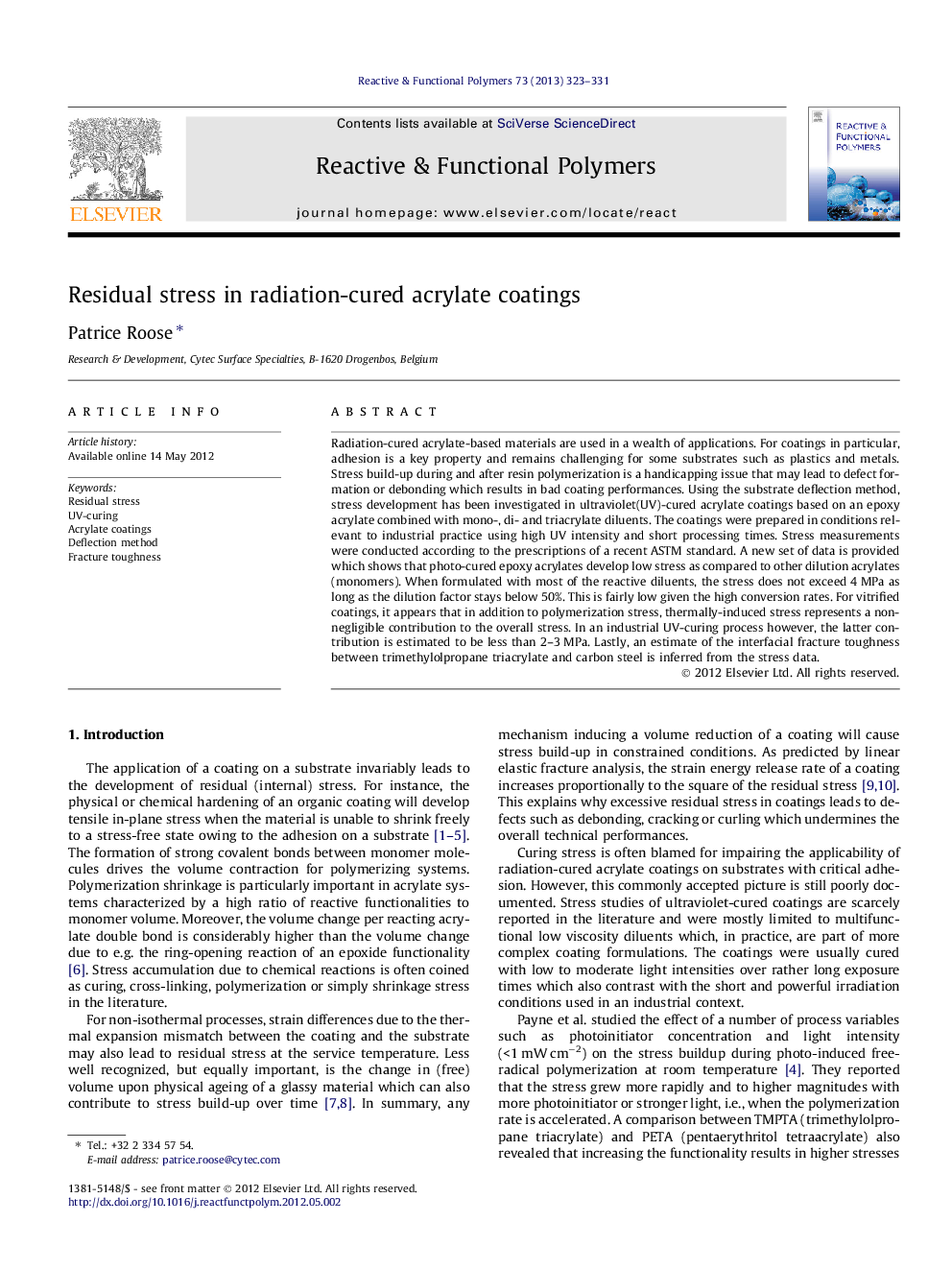| Article ID | Journal | Published Year | Pages | File Type |
|---|---|---|---|---|
| 5210118 | Reactive and Functional Polymers | 2013 | 9 Pages |
Abstract
Radiation-cured acrylate-based materials are used in a wealth of applications. For coatings in particular, adhesion is a key property and remains challenging for some substrates such as plastics and metals. Stress build-up during and after resin polymerization is a handicapping issue that may lead to defect formation or debonding which results in bad coating performances. Using the substrate deflection method, stress development has been investigated in ultraviolet(UV)-cured acrylate coatings based on an epoxy acrylate combined with mono-, di- and triacrylate diluents. The coatings were prepared in conditions relevant to industrial practice using high UV intensity and short processing times. Stress measurements were conducted according to the prescriptions of a recent ASTM standard. A new set of data is provided which shows that photo-cured epoxy acrylates develop low stress as compared to other dilution acrylates (monomers). When formulated with most of the reactive diluents, the stress does not exceed 4Â MPa as long as the dilution factor stays below 50%. This is fairly low given the high conversion rates. For vitrified coatings, it appears that in addition to polymerization stress, thermally-induced stress represents a non-negligible contribution to the overall stress. In an industrial UV-curing process however, the latter contribution is estimated to be less than 2-3Â MPa. Lastly, an estimate of the interfacial fracture toughness between trimethylolpropane triacrylate and carbon steel is inferred from the stress data.
Related Topics
Physical Sciences and Engineering
Chemistry
Organic Chemistry
Authors
Patrice Roose,
